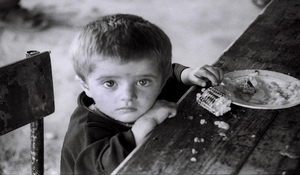Child’s Play: Cooperative Games as Tools of Deradicalization

“Child’s Play: Cooperative Games as Tools of Deradicalization“
Authors | Editors: Cooley, A. (Oklahoma State University); Cooley, S. (Oklahoma State University); Hinck, R. (Monmouth College); Kitsch, S. (Monmouth College)
Executive Summary
Research on radicalization is more robust theoretically than research on deradicalization. While there are several workable theoretical systems explaining radicalization, no theory of deradicalization exists (Koehler, 2017).
The most commonly discussed characteristic in theories on radicalized individuals is the loss of pluralization of political concepts and values that ultimately lead to violence as a valid course of action. That is to say, radicalization is notably correlated to a reduction in the number of perspectives a person is able to consider.
It has been proposed that by reversing this reduction of considered perspectives and introducing a ‘re-pluralization’ of political concepts and values, a path of deradicalization emerges. This process of re-pluralization includes, “a growing perception of alternative options to solve a decreasingly important (ideologically defined) problem” (Koehler, 2017, p. 81).
“[The] task of working with young radicalized individuals [is] nothing other than engaging with an extreme state of self-centeredness” (Weilnböck, 2014, p. 5).
Deradicalization efforts that focus on re-building, or “re-socializing,” a sense of self-identity that includes relationships with others seem the most promising. Certain techniques of reflection on narrative identity are designed intentionally to help contextualize action by accounting for as much complexity on the environment as possible. Exercises that allow for, and reflect upon, the co-creation of meaning within narratives and narrative roles help individuals tolerate, value and ultimately seek complexity.
Proposed Action
We propose using gaming exercises as intentional tools of narrative reflection among youth at risk of radicalization. These games provide opportunities for an examination of self- identity in relation to the various environments encountered and co-construction of meaning with others. An additional benefit is the cost-effectiveness of the games selected, ease of implementation, as well as the adaptability of these games to differing environmental contexts. This project offers a variety of such gaming exercises for CENTCOM to consider adapting toward various deradicalization initiatives.
Summary
The first objective of this research study was to assess current deradicalization programs and identify how these programs intentionally (or not) incorporate narrative reflection techniques in their programming. Researchers examined deradicalization programs, academic material, and other secondary deradicalization data for ways in which narrative reflection techniques were incorporated and discussed.
The second object of this research was to identify examples of easily adaptable, cost- effective gaming exercises in promotion of narrative reflection that could be used to mitigate, or even prevent, radicalization among refugee youth. Researchers examined the designs of various cooperative gaming exercises for those that illicit narrative construction, perspective sharing, and reflection opportunities.
Key Learning Component in De-Radicalization Programs:
- Focus on principles of group-dynamic based learning- where participants share their personal narratives and accounts of events that have occurred either in their biographies and/or their social environments.
- Attempt to develop central personality competencies among radicalized (and vulnerable to radicalization) youth, including emotional intelligence, empathy, the ability to build trust, the ability to form relationships, and, most importantly, tools for personal reflection; often taking the form of exercises where participants are taught how examine their own actions in relation to others. Narrative stimulates personal appraisals of violent acts, develops abilities to empathize and evoke moments of retrospection.
- Have an emphasis on the pedagogical roots of radicalization, education risks and protective factors that can be identified relevant to prevention and symptomatic treatment. Teach early detection practices, prevention activities, interventions (community empowerment and engagement, family support and alternative narratives) and exit strategies as learning modules.
- Focus on the role of civil society in preventing and countering violent extremism and radicalization. Youth are key civil society actors in preventing and countering violent extremism and radicalization. Dialogue facilitation is identified as a critical practical approach.
- When implementing deradicalization exercises, it is important to account for the contextual nuances of the radicalizing environment and the local environment of the participants. This means exercises must be custom- tailored for the specific circumstances they are deployed.
Key Element of Narrative Reflection in De-Radicalization Programs:
- Narrative reflection can manifest itself in participants learning to take an interest in what others do, as well as understanding points of similarities and differences in other people’s paths.
- Narrative reflection can be used as a tool aspiring to “awaken participants’ attention to what is experienced and narrated, and for the subtleties, contradictions and biographical influences that the worldview of each and every person displays.”
- Narrative reflection can be considered as the “importance of open and reflective communication for guiding adolescent youth in their search for meaning and identity, commitment to society, dealing with diversity and conflicting values…there must be room for critical reflection.”
- “Dialogue facilitation … provides opportunities for reflection and constructive debate on themes such as personal and societal development, education, independence, justice, honor, identities, gender norms, belonging and post-conflict reconciliation, etc.”
- Narrative reflection is a potential mechanism for contextualizing radicalizing environment and local environment in deradicalization.
Games as Tools in Promotion of Narrative Reflection
- Games and mental exercises are fundamental tools at developing our identity. We are in many ways brought closer together when we share experiences, victories, hardship and growth through one another.
- It is through proper counsel and the use of tools such as games and exercises that youth can come to a greater understanding of themselves and the world around them and fulfill their psychological needs.
- Game and exercise examples from: the Youth Counselling Against Radicalisation (YCARE) toolbox, Radicalisation Awareness Network (RAN) toolbox and Maheshvarananda’s (2017) book Cooperative Games for a Cooperative World.
Download Publication
Comments